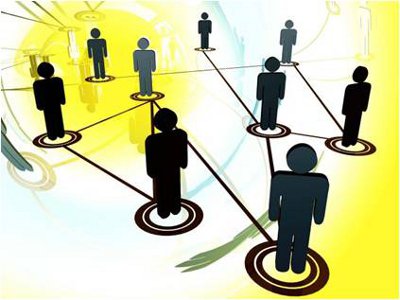"Sala de Juntas" 3.3.B01 - Edificio Rey Pastor (Biblioteca), Universidad Carlos III de Madrid, Avda. Universidad, 30, 28911 Leganés – Madrid
Ponentes y asistentes: Miembros del Consejo Científico de IMDEA Networks e invitados:

- Marco AJMONE (Polytechnic University of Turin, Italy and Institute IMDEA Networks, Spain)
- Konstantin AVRACHENKOV (INRIA Sophia Antipolis, France): Improving Random Walk Estimation Accuracy with Uniform Restarts
- Arturo AZCORRA (CDTI, Spain)
- Marcelo BAGNULO (Carlos III University of Madrid, Spain)
- Hari BALAKRISHNAN (MIT, USA): Vehicular Cyber-Physical Systems, Or, Improving Your Commute
- Albert BANCHS (Carlos III University of Madrid and Institute IMDEA Networks, Spain)
- Gonzalo CAMARILLO (Ericsson Labs, Finland)
- Jon CROWCROFT (University of Cambridge, UK): Media landscape in Twitter: A world of new conventions and political diversity
- Rubén CUEVAS (Carlos III University of Madrid, Spain)
- Gustavo DE VECIANA (The University of Texas at Austin, USA): Rethinking Video Transport
- Albert DIAZ-GUILERA (University of Barcelona, Spain)
- Antonio FERNÁNDEZ ANTA (Institute IMDEA Networks, Spain)
- Chryssis GEORGIOU (University of Cyprus, Cyprus)
- Sergey GORINSKY (Institute IMDEA Networks, Spain)
- Dirk HELBING (ETH Zürich, Switzerland): The FuturICT Flagship: Creating Socially Interactive Information Technologies for a Sustainable Future
- Jose Felix KUKIELKA (Institute IMDEA Networks, Spain)
- Marcos KIWI (University of Chile, Chile)
- Jun LI (Carlos III University of Madrid and Institute IMDEA Networks, Spain, and University of Oregon, USA)
- Vincenzo MANCUSO (Institute IMDEA Networks, Spain)
- Cecilia MASCOLO (University of Cambridge, UK): Study of Geo-Social Networks, Social Cascades and Applications
- Nick MAXEMCHUK (Columbia University, USA and Institute IMDEA Networks, Spain): The Next Disruptive Network Technology
- Miranda MOWBRAY (HP Labs, UK): Twitter, a Techno-Social Network
- Huw OLIVER (University of Bristol and the Civil Aviation Authority, UK)
- Balaji RENGARAJAN (Institute IMDEA Networks, Spain)
- Gianluca RIZZO (Institute IMDEA Networks, Spain)
- Pablo RODRIGUEZ (Telefonica Research, Spain): Scaling Online Social Networks
- Rade STANOJEVIC (Institute IMDEA Networks, Spain)
- Ioannis STAVRAKAKIS (National & Kapodistrian University of Athens, Greece): How much can social metrics actually help in content distribution?
- Ralf STEINMENTZ (Darmstadt University of Technology, Germany): Perspectives in Benchmarking of Overlay Networks
- Leandros TASSIULAS (University of Thessaly, Greece): Opportunistic Caching and Cooperation for Effective Information Delivery
- Gábor VATTAY (Eötvös Loránd University, Hungary): Wide side of the Internet: Benford type distributions in Internet data
- Joerg WIDMER (Institute IMDEA Networks, Spain)
Abstract:

Institute IMDEA Networks annually holds a by-invitation-only thematic workshop in Madrid. The workshop accompanies a meeting of our Scientific Council comprised by prominent researchers. In addition to talks by Scientific Council members, the workshop includes invited talks by external experts in the research theme of the workshop. The 2011 workshop theme is Internet science with a focus on social networking.
The Internet as a technological artifact emerged at the border between computer science and electrical engineering about 40 years ago. Since then, the Internet of hosts, routers, and packets has dramatically expanded and become an indispensable part of the modern life. Networking insights from optimization, queuing, information, control, graph, and other theories accompanied the Internet growth. Over time, the stance of Internet technologists toward the society changed from ignoring the human factor in the technology, through the more recent focus on hardening the technology with security, to the current interest in embracing the real life with all its complexities.
Internet science is an effort to scientifically capture this new vision of the Internet as both technological and societal artifact. The holistic vision expands the realm of Internet problems beyond computer science and engineering into other disciplines such as economics, sociology, political science, law, biology, and physics. By bringing new mathematical apparatus and altogether different investigative techniques, these traditionally separate disciplines might enhance the purely technological approach to discover new successful Internet solutions. For example, while the integrated approach suggests interpreting the Internet as a complex system that is not under the full control of its engineers but rather evolves according to its own principles, physical and biological insights into complex systems and their evolution hold a promise for improving our understanding of the Internet. Furthermore, Internet science is expected to yield multidirectional knowledge transfer that enriches the traditionally non-technological disciplines.

The workshop objectives are mostly in discussing what Internet science is or, perhaps, what it should be. Is Internet science just a new name for research in computer networking and distributed systems? The intersection with which discipline is likely to give Internet science its next significant breakthrough? In particular, can Internet science revolutionize online social networking? Which specific analytic techniques and experimental methods from the social and natural sciences can enrich the traditional apparatus of Internet technology scientists? What are the right metrics for the expanded problem space? What are the concrete ways for Internet technologists to contribute to the other engaged disciplines? With the specialization being a common path to success in science, why do we expect the holistic multi-disciplinary Internet science to succeed at all?
Web del evento: http://events.networks.imdea.org/workshop2011

